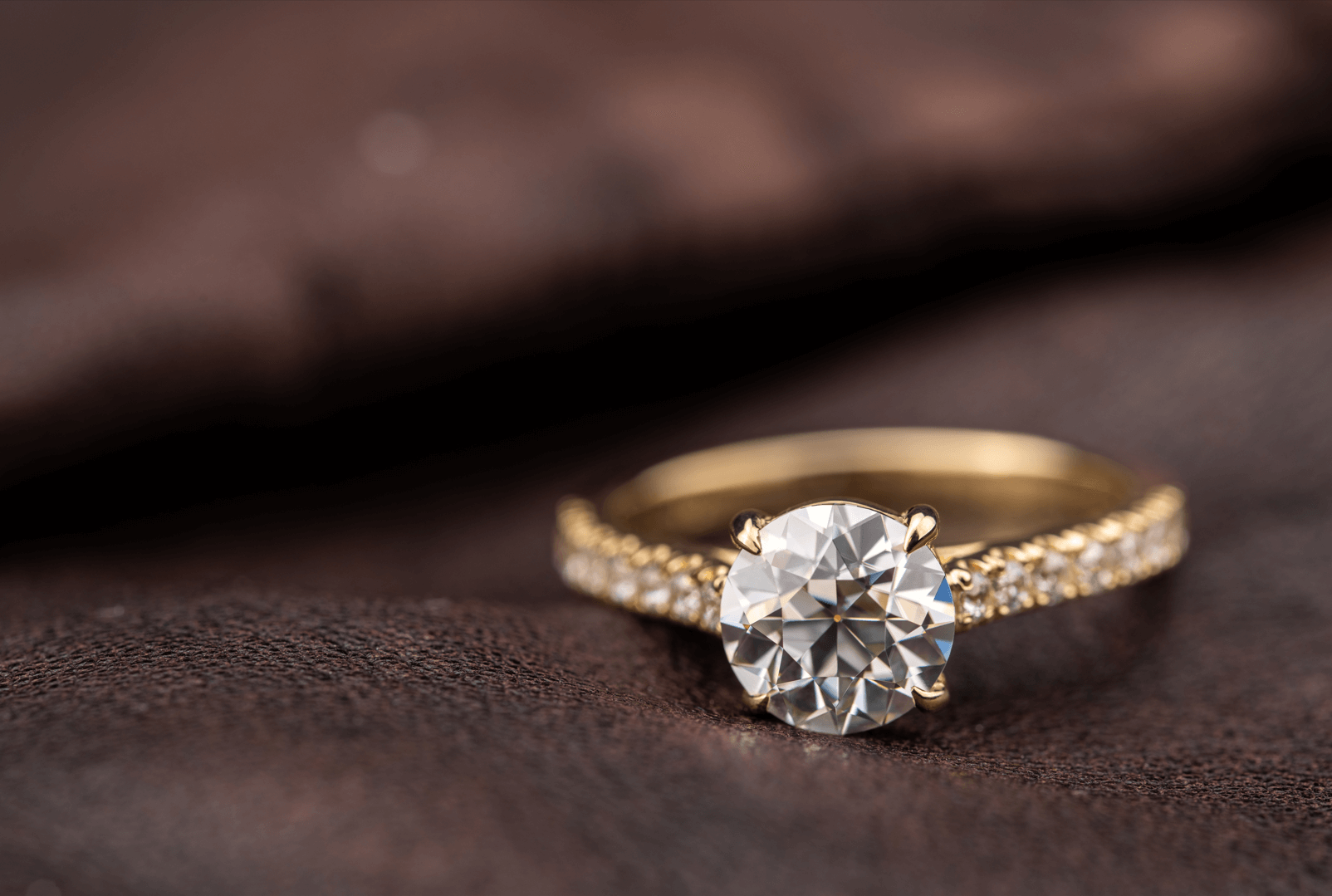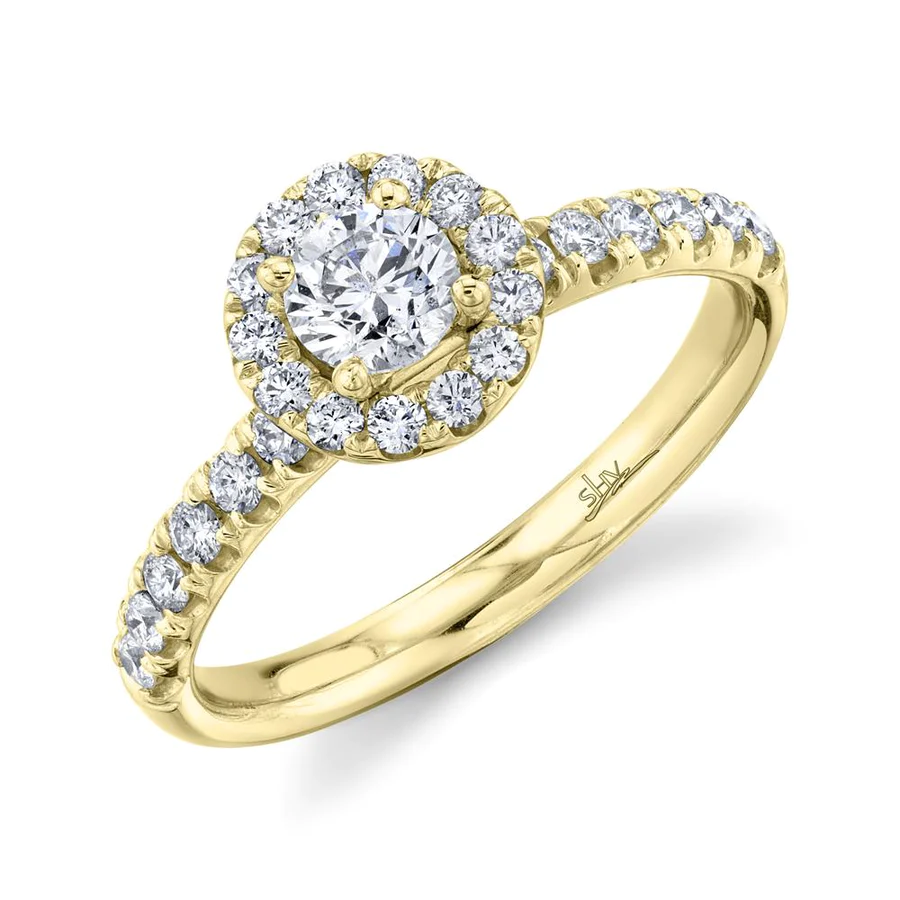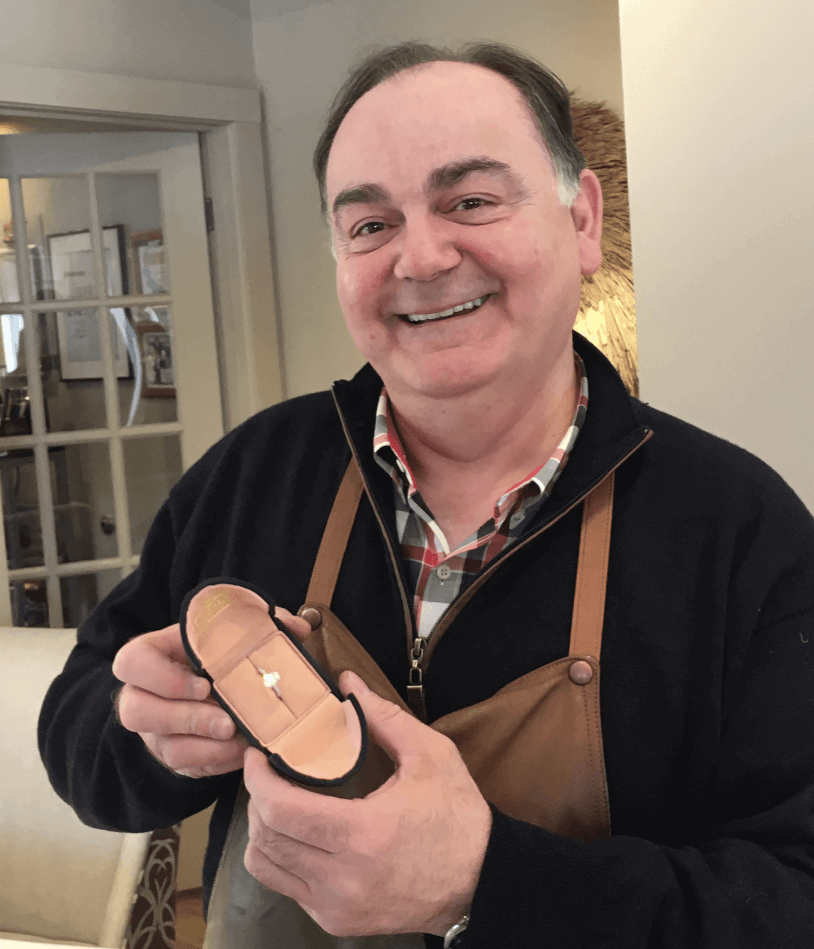JEWELRY EDUCATION
Does Gold Tarnish?


Gold is often the premiere choice when it comes to fine jewelry. Whether it’s a wedding band, a necklace, or a custom design, people continue to choose gold because it offers both beauty and lasting value. It’s a metal that holds up to daily wear while carrying meaning across generations.
For all its appeal, many people have practical questions about gold—especially about its care and durability.
One of the most common is: does gold tarnish? It’s a good question to ask if you’re considering a new piece or want to better care for jewelry you already own.
The answer is: it depends.
Pure gold itself does not tarnish. But, alloyed gold, or gold of lower karats, can and does tarnish if not cared for.
In this guide, we’ll cover what tarnish is, why some gold jewelry develops it, and how to keep your pieces looking bright and beautiful.
What Is Tarnish and Why Doesn’t Pure Gold Tarnish?
Tarnish is a thin layer of discoloration that forms when certain metals react with oxygen, sulfur, or other substances in the air.
It’s common on metals like silver and copper, which darken as they oxidize. In gold jewelry, tarnish doesn’t come from the gold itself but from the other metals mixed in.
Pure gold—24 karat gold—is chemically stable and does not react with air or moisture, which is why ancient gold artifacts still look the same centuries later.
Which Types of Gold Tarnish the Most?
Not all gold is created equal when it comes to tarnish. The likelihood of discoloration depends on the karat—or how much pure gold the piece contains compared to alloyed metals. The higher the gold content, the less likely it is to tarnish.
Because pure gold is soft, it isn’t practical for everyday jewelry. To make it stronger and adjust its color, gold is alloyed with metals like copper, silver, nickel, or zinc—and it’s these alloys that can introduce tarnish over time.
- 24K Gold: Pure gold (99.9%) does not tarnish. However, it’s very soft, which makes it less practical for rings, bracelets, and other pieces exposed to daily wear. For this reason, 24K gold is often reserved for investment pieces or cultural jewelry traditions rather than everyday fine jewelry.
- 18K Gold: Containing 75% pure gold and 25% alloyed metals, 18K is much more durable than 24K while still resisting tarnish very well. It may show subtle surface changes over many years, but these are generally minimal and can be polished away. Many people choose 18K for its rich yellow color and balance between durability and purity.
- 14K Gold: With 58% pure gold and 42% alloyed metals, 14K is one of the most popular choices for fine jewelry. The higher alloy content makes it stronger and more resistant to scratches, but also more likely to tarnish compared to 18K. Any discoloration that does occur is usually light and easy to clean, making 14K a practical choice for everyday wear.
- 10K Gold: At just 41.7% pure gold, 10K contains the highest amount of alloyed metals. This makes it the most affordable option, but also the most prone to tarnishing or dulling over time. While durable, it has a paler yellow appearance than higher-karat gold and may require more frequent cleaning to maintain its shine.
Whichever karat you choose, tarnish is always a surface-level effect—it doesn’t harm the gold itself. With simple care at home or a quick professional clean, any piece can be restored to its original brilliance.
Caring for Tarnished Gold Jewelry
Gold jewelry doesn’t require much upkeep, but a little care goes a long way in preventing or removing tarnish:
- Avoid chemicals: Take jewelry off before swimming or using cleaning products with bleach or chlorine.
- Store properly: Keep pieces in a soft pouch or separate box compartment to prevent scratches and reduce exposure to air.
- Clean gently: A mix of mild soap, warm water, and a soft brush is usually enough. For a deeper clean, your jeweler can polish and restore the piece professionally.
Explore Gold Jewelry at Kosmima Fine Jewelry
At Kosmima Fine Jewelry, we want you to feel confident in your jewelry choices. Pure gold doesn’t tarnish, but the alloys in fine jewelry sometimes do—and with the right care, that’s nothing to worry about. If you have a tarnished piece, our team stands by to professionally clean them to bring them back to their original shine once again.
With over 30 years of experience serving the Greater Boston Area, we can help you choose the right gold for your lifestyle, restore heirloom pieces, or design something new and personal. Whether you’re interested in a classic band, a custom engagement ring, or a refresh for jewelry you already love, our team is here to help.
Visit our Chestnut Hill showroom or book a consultation today—we’d love to help you find (or create) gold jewelry that you’ll enjoy for a lifetime.




